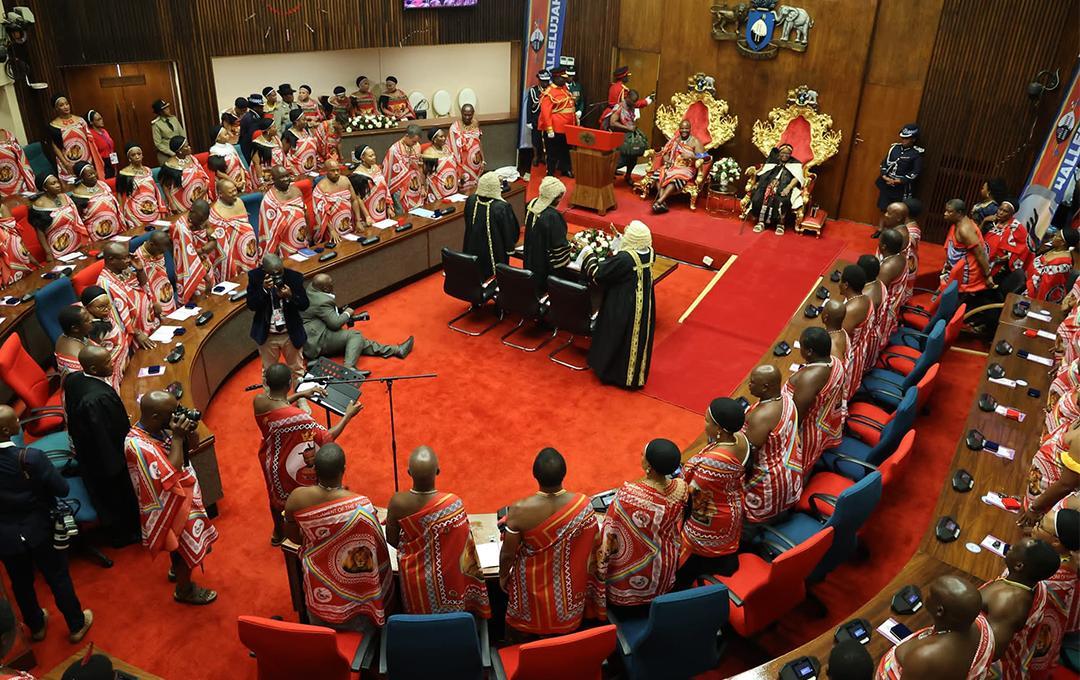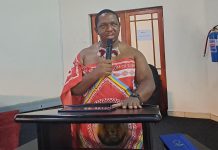Africa-Press – Eswatini. In a move to address unemployment and support key sectors, Minister of Finance Neal Rijkenberg has announced three projects under government’s Capacity Development and Sector Support programme.
These initiatives align with the mandate amplified at the recent Sibaya, focusing on fostering entrepreneurship and growth in strategic areas further placing the Small Enterprise Development Company (SEDCO) at the center of this move.
Rijkenberg, in the National Budget Speech delivered on Monday in Parliament, highlighted the SEDCO – Eswatini Energy Regulatory Authority (ESERA) Entrepreneurship Project which aims to integrate entrepreneurship with the existing mini-grid system as one of the projects under the programme.
Leverage
By facilitating the establishment of 10 new businesses that leverage mini-grid generated electricity, the project supports His Majesty’s vision for expedited national electricity independence.
He indicated that this collaboration between SEDCO and ESERA had the potential to create jobs, promote sustainable energy use, and contribute to the nation’s overall economic development.
The minister further highlighted another project by SEDCO in collaboration with the Youth Enterprise Revolving Fund (YERF) which focuses on providing business training, coaching, and mentorship to 250 youth-owned enterprises.
With an ambitious goal of creating 500 new jobs, this initiative aims to empower young entrepreneurs and unlock their potential to contribute to the Eswatini economy, according to the minister.
He further indicated that this project aligns with government’s commitment to address youth unemployment and foster a culture of entrepreneurship among the younger generation.
Rijkenberg also highlighted the Eswatini Livestock Value Chain Development Project, undertaken in partnership with the International Trade Center.
He said it focused on supporting 300 cattle and goat producers across all four regions of Eswatini, contributing to rural development, income generation and food security in the country.
Enhance
Rijkenberg further stated that the project aimed to enhance the country’s livestock value chain, potentially increasing production, improving product quality, and facilitating market access for these producers.
According to CEO Khethiwe Mhlanga, SEDCO is currently in the initial phase of implementing the Africa Mini-Grid Project in partnership with ESERA.
She said the project’s primary objective was to increase the demand for renewable energy in the mvundla and Ebulimeni communities by establishing new businesses that can leverage the power generated from the mini-grids.
“The project rollout commenced with team introductions to the communities,” said Mhlanga.
Utilise
She further underscored that an opportunity analysis had already been conducted to identify business prospects that could utilize the grid in both communities.
“In Mvundla community, the top projects identified include maize milling, sewing, welding, salon, and a bakery. Similarly, in Ebulimeni several business opportunities were identified including retail shops, maize milling, a bar, salon, sewing business, a pharmacy, butchery and a hardware shop,” she said.
Mhlanga said these business prospects were identified based on the needs of the communities, readily available economic resources, and skills and knowledge that the community would bring to the table.
“SEDCO further identified 27 entreprenueurs in Mvundla and 35 in Ebulimeni,” she said.
Mhlanga noted that in a bid to assess their potential, SEDCO conducted a capacity gap analysis which revealed competency gaps in several areas such as entrepreneurship and business management, business planning, loan management, financial literacy, costing and pricing, bookkeeping, market targeting, research and acquisition, marketing and customer care, and business formation and governance.
Viability
“Currently, SEDCO is conducting feasibility and viability studies for the proposed enterprises and this includes market survey, business model feasibility and viability assessment and lastly, financial viability assessment,” she said.
Mhlanga noted that the Youth Enterprise Revolving Fund-SEDCO project would resume providing entrepreneurship training business coaching and mentorship services to YERF beneficiaries on March 1.
Expected
“This project will run for three years and is expected to address and mitigate the persistent challenges faced by YERF beneficiaries, particularly in the areas of business failures and high loan defaults,” she said.
Speaking on the Eswatini Livestock Value Chain Development Project Mhlanga revealed that it was in the pipeline.
“SEDCO will be supporting the ministry of agriculture as an implementing partner by providing business development services such as entrepreneurship training,” business coaching and mentorship,’ she said.
For More News And Analysis About Eswatini Follow Africa-Press







